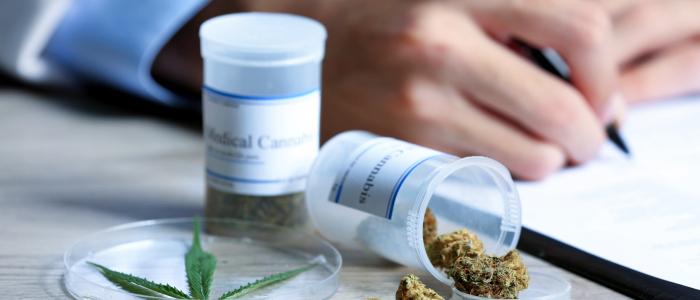
After lengthy discussions, the Cannabis Act (Cannabisgesetz, “CanG”) was approved by Germany’s Federal Council (Bundesrat) on 22 March 2024, with most of its provisions coming into force on 1 April 2024. Not only does the Act partially legalise recreational cannabis, it also signifies important changes in the area of medical cannabis.
The two most important new features of the Medical Cannabis Act (Medizinal-Cannabisgesetz, “MedCanG”) are as follows:
- The cultivation and distribution of medicinal cannabis are now regulated by a purely authorisation-based procedure rather than an award-based one, as previously. The days of centralised purchasing by the Cannabis Agency are over.
- Medicinal cannabis is being removed from the Narcotics Act (Betäubungsmittelgesetz, “BtMG”) and will therefore be subject to fewer bureaucratic requirements.
This will present producers, doctors, pharmacies and patients with a number of new opportunities and challenges, which we take a look at in this article.
Cultivation of medicinal cannabis made easier
Previously, commercial medicinal cannabis growers had to navigate an extensive and legally uncertain award procedure to obtain a licence from the Federal Institute for Drugs and Medical Devices (Bundesinstituts für Arzneimittel und Medizinprodukte, “BfArM”). The Cannabis Agency at the BfArM purchased the medical cannabis centrally from the producers who had been awarded the contract. This time-consuming procedure was repeatedly challenged in court and in some cases delayed the supply of high-quality cannabis to patients. The new law replaces the award procedure with a purely authorisation-based procedure that reduces the barriers to market-based cultivation in Germany and is likely to create equal opportunities for German growers when it comes to competing internationally.
To obtain a licence, growers must submit the necessary documents to the BfArM and prove that they meet the requirements for cultivating, producing, trading, importing, exporting, supplying, selling, otherwise placing on the market, procuring or acquiring medicinal cannabis for medical or scientific purposes. The Act clarifies the specific terms of the licence and sets out which documents must be submitted with the application.
Medicinal cannabis to be removed from Narcotics Act
Another relevant change stems from the removal of medicinal cannabis from the BtMG. This change affects doctors and pharmacies in particular and ensures that some of the effort involved in handling cannabis is eliminated. Narcotics documentation and storage in a safe are no longer necessary. Also, a normal doctor’s prescription – instead of a special narcotics prescription – will now suffice. In future, medical cannabis will be treated like any other prescription medicine.
The Federal Government estimates that time savings of five minutes per prescription are realistic. Extrapolating from this, pharmacies throughout Germany could save a total of over two million euros a year in staffing costs. Removing medicinal cannabis from the BtMG will also make things easier for patients, as they will have fewer obstacles to overcome when obtaining a prescription for and picking up medicinal cannabis.
Pharmaceutical quality of medicinal cannabis guaranteed
Medicinal cannabis still has to meet the same quality standards as other herbal medicinal products. These include the requirements of “Good Agricultural and Collection Practice” (GACP), “Good Manufacturing Practice” (GMP) and the corresponding monographs from the German Pharmacopoeia (Deutsches Arzneibuch). The purpose of these requirements is to guarantee the safety, efficacy and purity of medicinal cannabis and to enable product traceability.
New requirements for recreational cannabis
The Act also lays down the requirements for the partial legalisation of recreational cannabis. Adults aged 18 and over are allowed to possess up to 25 grams of cannabis in public spaces and up to 50 grams in their residence. In addition, up to three cannabis plants may be grown per adult per household, whereby the cannabis harvested may only be used for personal consumption and may not be distributed.
Private cultivation associations (“cannabis clubs”) with a maximum of 500 members (who are at least 18 years old and resident in Germany) will be allowed to grow cannabis for recreational purposes, but cannabis grown there may only be distributed to members for their own consumption – there must be no intention to make a profit. Operating a cultivation association will require an official licence and be subject to monitoring by the competent state authorities. The provisions governing cultivation associations will not enter into force until 1 July 2024.
According to recent press reports, the Federal Ministry of Food and Agriculture (Bundesministerium für Ernährung und Landwirtschaft) is expected to issue an ordinance before the end of this legislative period that will contain further liberalisation, including the commercialisation of recreational cannabis (“coffee shops”) within the framework of regionally limited model projects. While the details have not yet been made public, it remains doubtful that this step will be able to dispel concerns under EU and international law about the commercial legalisation of recreational cannabis. You can also find information on the legal hurdles in our article of 24 August.
Conclusion
The partial legalisation of cannabis also entails significant changes to the area of medical cannabis that are intended to make it easier to cultivate, sell, prescribe and obtain medical cannabis and to ensure its quality. This will result in a number of new opportunities and challenges for producers, doctors, pharmacies and patients.
